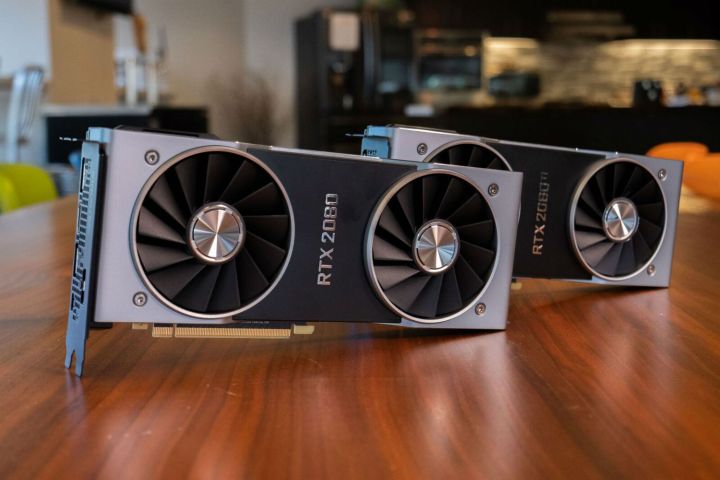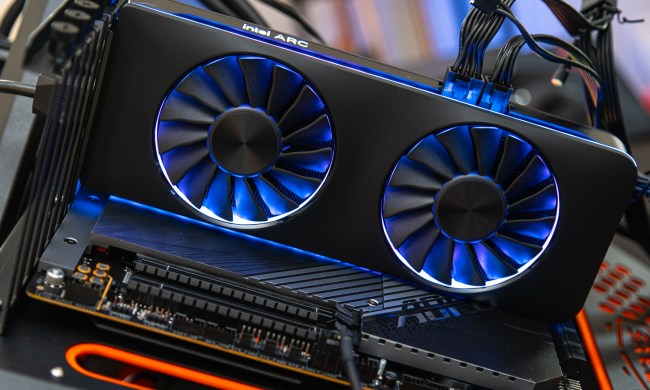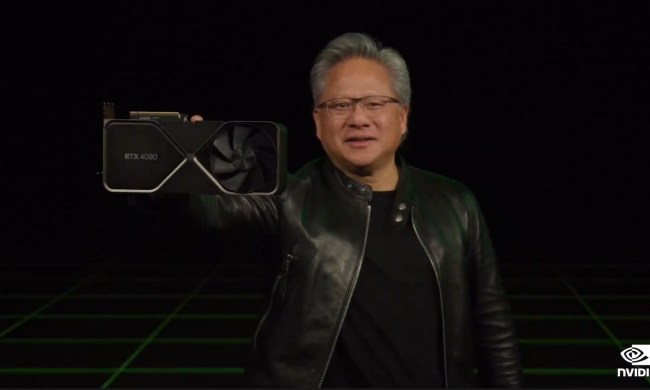
True to form, Nvidia looks set to respond to AMD’s upcoming Navi generation of graphics cards with some tweaks to its existing GPU lineup. It is reportedly readying some enhanced versions of its RTX 2000-series Turing cards with faster memory. It’s not clear whether this will mean replacements of all existing cards, or whether this will form Nvidia’s typical mid-generation reshuffle in the form of new Ti cards.
The last time AMD launched a line of graphics cards was in 2017 with the first-generation Vega cards (ignoring the powerful, but niche, Radeon VII release earlier this year). Nvidia responded with the launch of the 1070 Ti just a couple of months later, offering credible competition to both the Vega 56 and 64. With AMD’s Navi graphics cards set to launch in just a couple of months’ time, it looks like Nvidia may once again look to supplant AMD’s new GPU launch with a refresh of its own.
All existing RTX Turing graphics cards utilize GDDR6 memory running at 14Gbps, but according to the latest rumor from a RedGamingTech video, via PCGamesN, Nvidia will boost that to 16Gbps to create a number of new, competitive graphics cards. Since existing rumors suggest Navi will compete with Nvidia’s GTX 16-series cards, as well as the RTX 2060 and 2070, we would expect any Nvidia refreshes to focus on those latter two RTX cards. The 1660 Ti and 1660 are too new to receive any kind of re-release at this point in time.
Even a refresh of those cards feels quite fast though, considering the RTX 2070 was only released in October 2018, and the RTX 2060 in January this year. New versions of either of those cards might not please existing owners who only recently upgraded, but such are the perils of buying new PC components. There’s always something new and shiny just over the horizon.
AMD’s Navi cards are slated for a third-quarter 2019 release, but many point to July 7 as a probable launch date, giving AMD a 7/7 release date to celebrate the technology’s use of a 7nm process. Nvidia would likely attempt to undercut this by launching its revised graphics cards a little sooner, but we’ll have to wait and see how that plays out.




